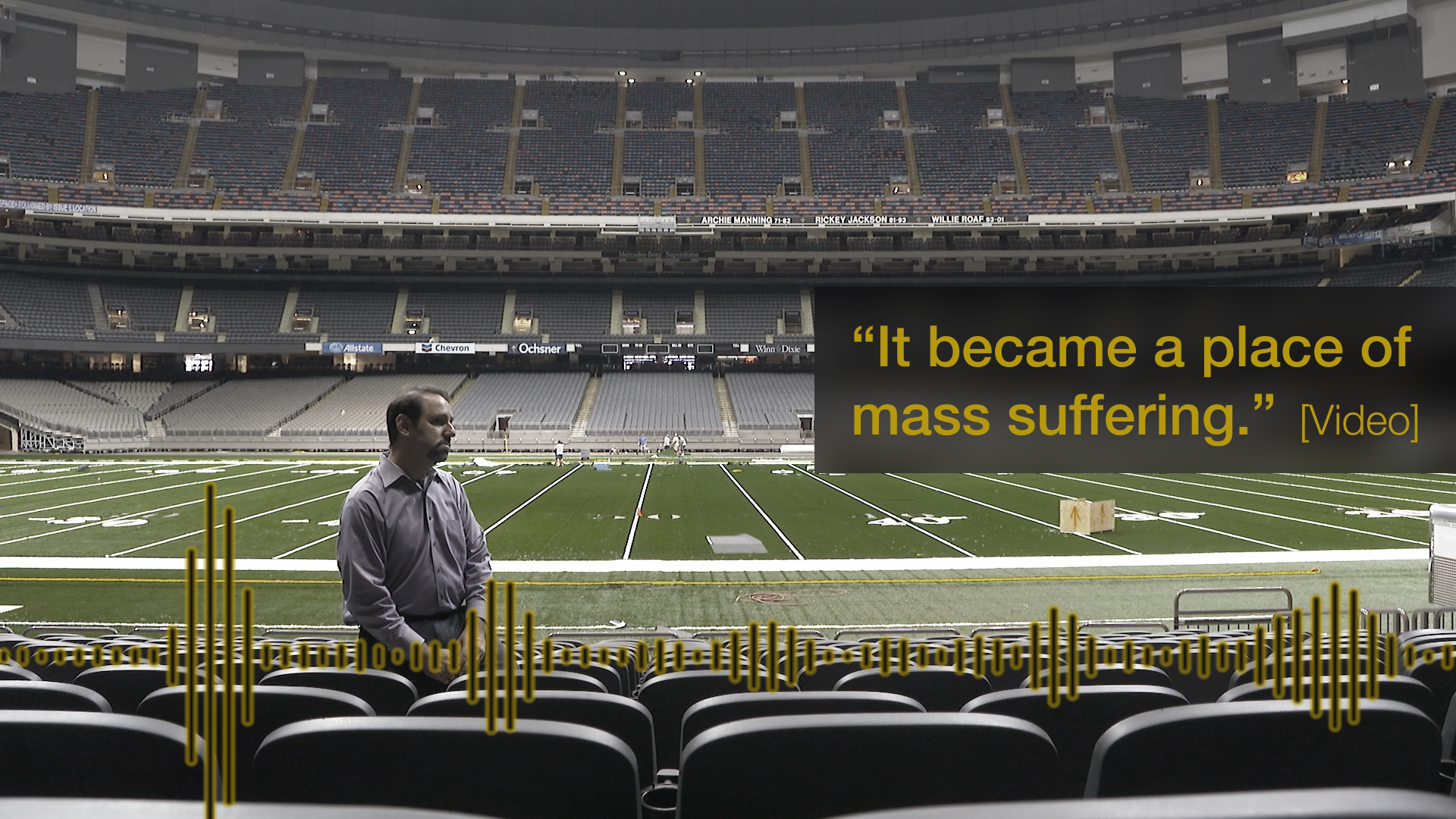Hurricane Katrina: Big Freedia answers your questions
- Published
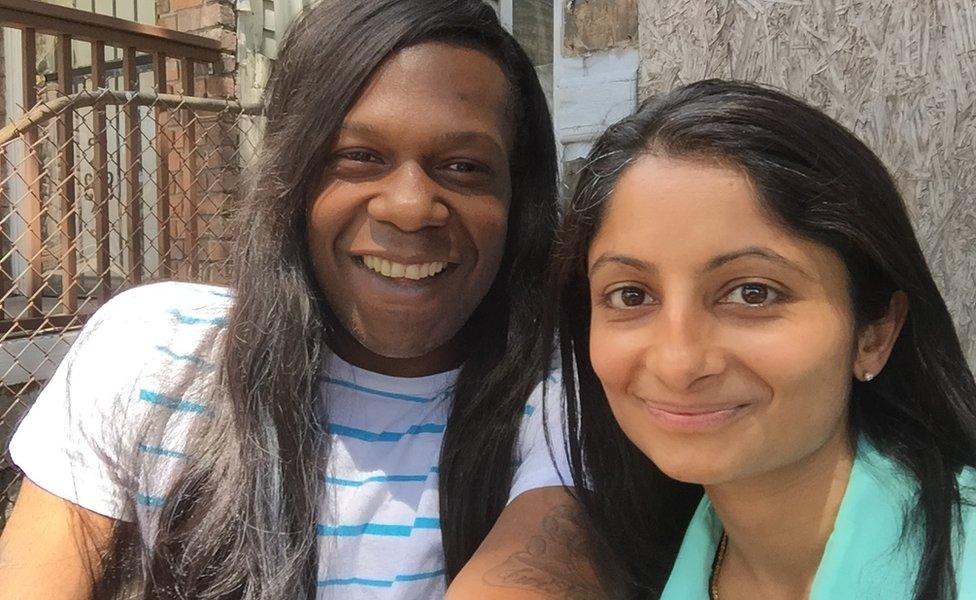
Freedia is now a star of the New Orleans bounce music scene - but 10 years ago she had to be rescued from her rooftop
"We're under nine feet of water and we're trying to get out. We have a baby. We are frightened..."
What was it like to be trapped in the floods after Hurricane Katrina? How did people survive?
Freddie (New Orleans music star Big Freedia) was one of hundreds of desperate residents who called out for help by dialling the only local radio station left on air - WWL,.
On the 10th anniversary of the disaster I spoke to Freedia about her experiences, asking her some of your questions from the BBC News Facebook page, external.
Listen to Freedia's phonecall while trapped on the roof as the waters rose
Big Freedia called in from the rooftop of the family's home in Painters Avenue. Today, there's just a flat patch of land where it once stood. Freedia meets me at her aunt's old house on Jackson Street, which is still standing but is boarded up. Covered in leaves and weeds, faded teal paint on the latticed balcony is the only nod to the building's finer days.
Big Freedia is one of New Orleans' biggest names - a star of the Bounce music scene, the city's brand of hip hop. "I define it as an up-tempo heavy beat, heavy bass, call-and-response type music," Freedia tells me.
The first question from the BBC Facebook audience: "Why did you ignore the call to evacuate?", external (Jay Klein)
Well this is New Orleans we have so many storms that come through here we don't know if the storm is going to hit or not. And even if it hits, the levees wouldn't normally break. If the levees hadn't broken we would still be OK.
It takes a lot to want to leave all of your property, all of your stuff when you've been brought up with it. And remember - the last big storm that hit us was years and years ago, when my Mom was small. So I didn't know if this storm was going to be real or not.
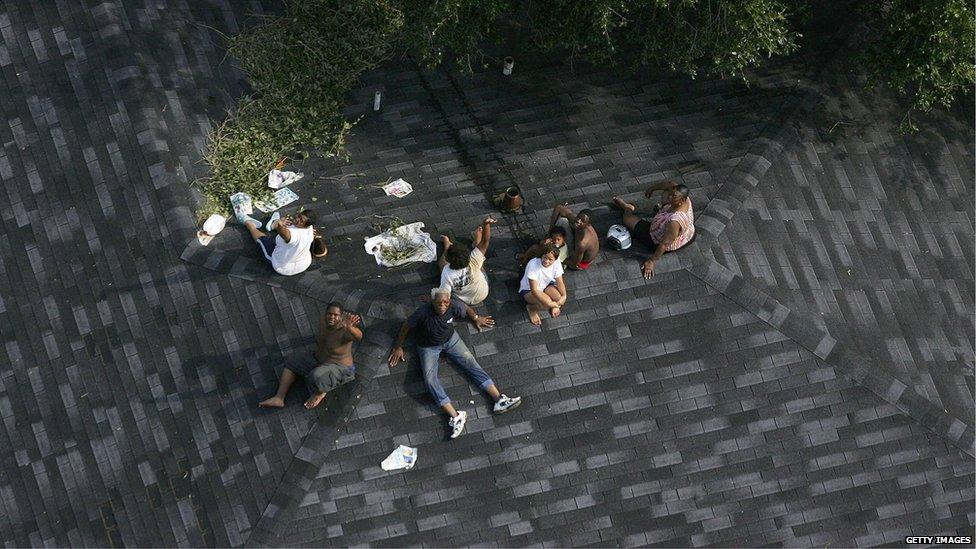
When you got trapped on the roof, with the water rising, what was going through your mind?
Are we going to make it? Are we going to survive? The water was so high. Will one of us drown? Will my newborn niece survive? So many things were going through my mind.
The tree hit the house and shook off half of the roof. Will this house survive or collapse into the water?
I was just praying to God - asking him if he would pull me and my family through.
Why did you call in to WWL Radio?
The way that things were happening we didn't know when we would be rescued. Helicopters were flying right over us and passing us up. It was very scary, we didn't know if we would be picked up or not or if we would be stuck in that house for days and days.
We were trying every desperate measure there was. We had the radio station playing in the house. It was the only one that was on, and they said: "Call in if you need help, we'll try to do what we can do on our end". And that's what made me call.
I was very happy WWL were still live on air trying to help us. Those people could have been evacuating themselves. But they were still taking calls from people in desperate need.
Listen to Hurricane Katrina as it hit the WWL radio station in New Orleans
When we played you back the call you made, how do you feel listening to it now?
When I heard it, it was very touching. It brought back all of those old feelings of what we went through. I'm happy I'm still here to be able to tell the story and there was some type of record of me calling in.
What happened after the call?
We were praying for hope, praying even harder that that call made something happen. Out of nowhere, not long after, a neighbourhood boat with a man and a woman came to rescue us. They may have heard the call.
Do you know who it was?
It was random people in the neighbourhood who had a boat. That was something I wanted to remember, but so many things happened and it moves into so many places, I don't remember the husband and wife's name.
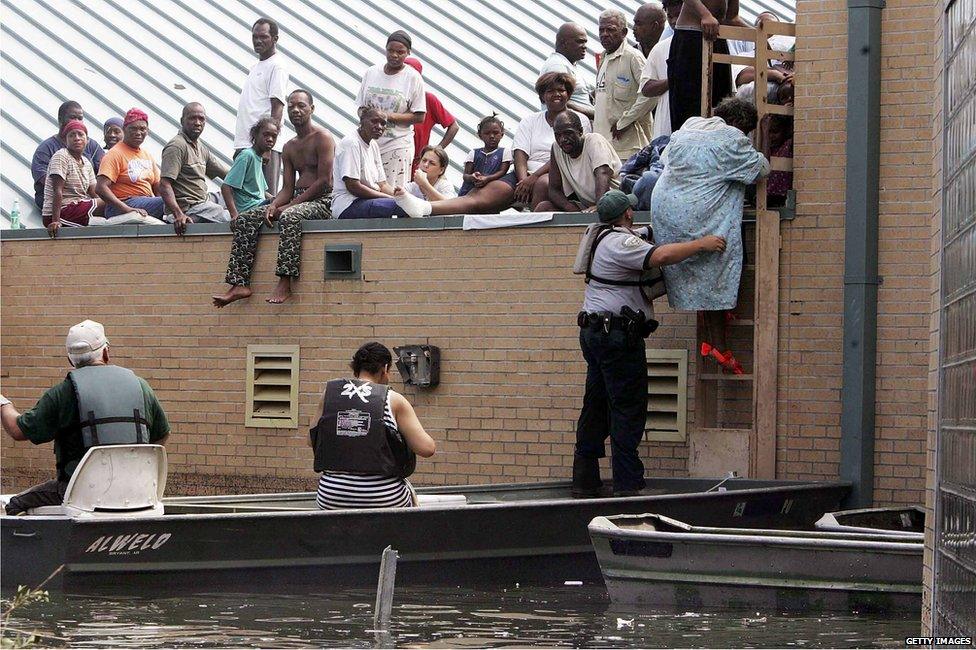
What happened after you were rescued?
They brought us to dry land. After that we started to try to proceed towards the Superdome. But there was more water we couldn't get past. So another boat came and put us at the bridge. We had to sleep on the bridge for the night. After that, buses came and brought us to the Superdome.
There were national guards and police up there with guns, and they said don't come in here, you have to go to the Convention Center. Then we went to do a little looting. We looted drinks and stuff, and after that we went to the Convention Center.
We stayed there for at least five days, sleeping on the ground, waiting for the buses to come and rescue us. Once the buses finally came it was like "thank you God".
They took us to the airport - and from there to Arkansas, where we were at like a military campground, then a church campground. We stayed there for some days.
After that I finally was able to get in touch with my mom - the only person who was left. We met in Shreveport. It was a reunion like never before. I was so happy to see my mom. I hugged her so tight, we were all crying and very emotional.
Another question from our Facebook audience: "Do you feel the US government did everything possible to help the survivors? Are you satisfied with the response the government made?", external (Sendoi Likwasi)
At first we were definitely not happy with the response. In the first couple of weeks it was a slow process. But no-one's prepared for situations like this. I think they did the best that they can do. And once the president and people round the world started helping it started getting better. In those situations God is in control and man can only do so much.
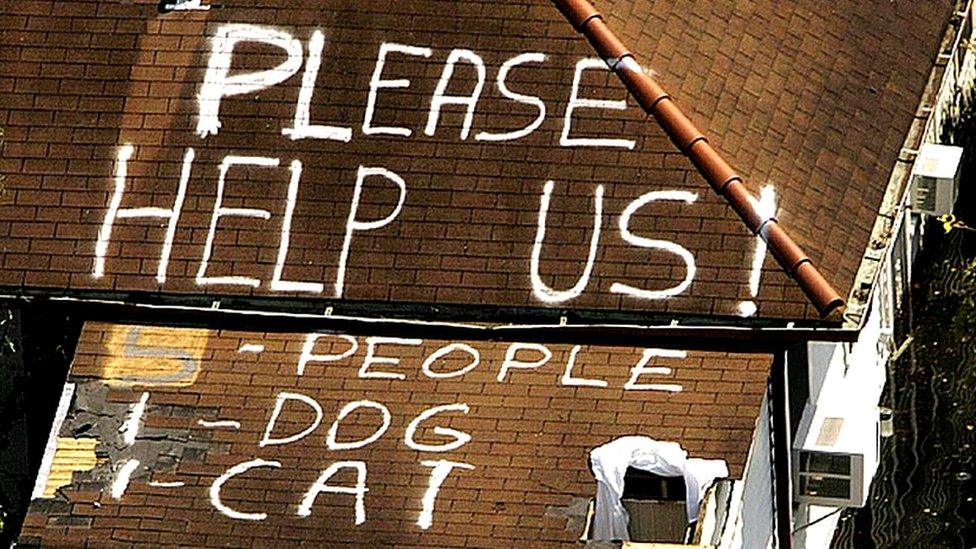
"I would like to know if Freedia agrees with Kanye West that the shameful, neglectful government response was race-related?", external (Jimmy Radosta)
Listen, everybody was all in the same boat - black, white, Asian, Hispanic - it didn't matter what colour your skin. White people, black people, we all were all stuck. What they did for one they had to do for all.
No, I don't hold him responsible because we were all watching the weather. All of the meteorologists were on it. No one can predict what God is going to do. They did the best they could - hitting their horns and trying to get everyone to evacuate. It was a trying time.
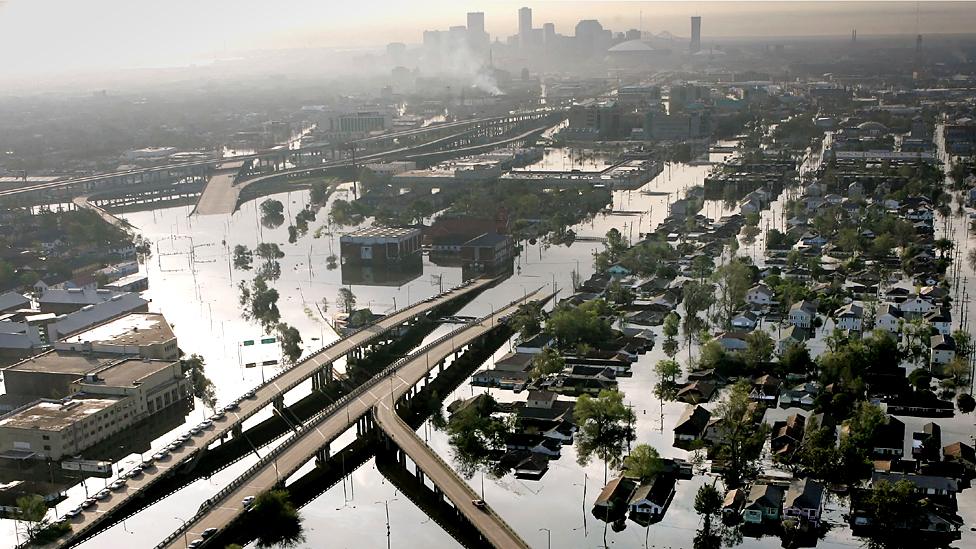
How did you and your family recover from Katrina?
We went to live with our family in LaPlace for a while. There was an old family house that was sitting up for 20 years and we refurbished the house and got everything working - got the lights on, the water, had to get new hot water heaters, new floors, paint the whole house. We went through some real work put our lives together.
Then I moved to Texas. But it was too slow in the country for me. It was old people sitting in rocking chairs. I come from the city of New Orleans where it's live and vibrant. I couldn't do that.
As soon as I was able I came back to New Orleans. I was one of the first ones back here. I wanted to try to rebuild and do what I can do to help people to get back to New Orleans.
I started travelling doing shows everywhere to make people feel like a sense of New Orleans wherever they may be. When I came and did the bounce music, it was like Michael Jackson has arrived, people were falling out, having a good time, shaking. We all had Katrina and FEMA money so it was popping.
What is bounce?
Bounce music is music and culture from New Orleans. I've born and raised of it and now I'm part of the game. I define it as an up-tempo heavy beat, heavy bass, call-and-response type music.
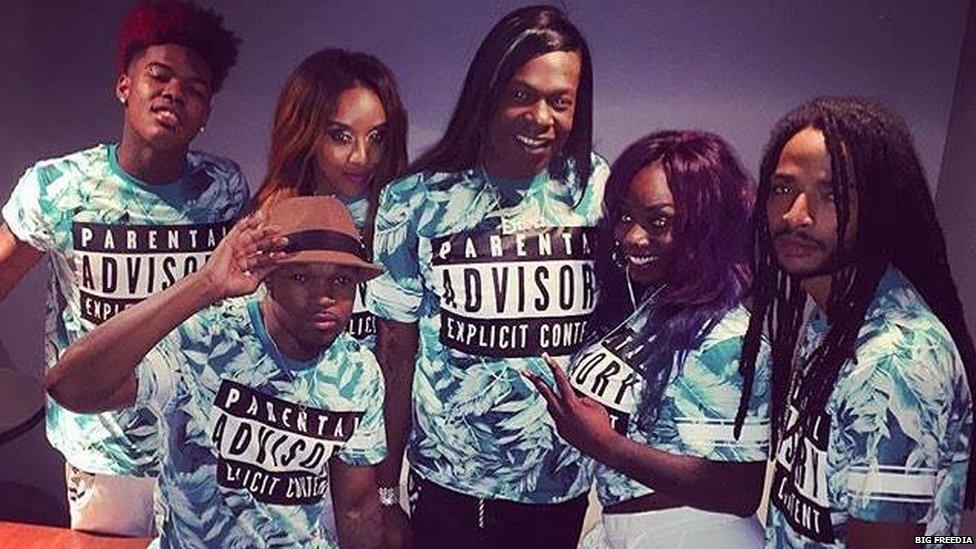
"How has this affected your life ten years later? Have you thought about doing a documentary about your personal experience?", external (Jonathan Paul)
It definitely changed my life. I realised that this can happen to anyone around the world - we are no different.
It made me look at things that happen [elsewhere] around the world differently - big catastrophic storms and tsunamis. I should know about this, I should care about this and help somebody if this happens.
We're sitting outside your Aunt's house - still boarded up. How much progress has really been made in New Orleans?
I would say a lot has been made. Only in small parts. A lot of people are coming back, rebuilding and taking over properties, helping to rebuild New Orleans.
In a way, your story is an example of how you can go from literally being trapped on a rooftop to being a success, and that's kind of a story of the rebirth of New Orleans.
Definitely. No matter who you are, even at the time if you were somebody and had a lot of money it didn't matter. We were all in that same boat.
The journey after Katrina, it opened a lot of doors for a lot of people. Coming from a rooftop to going to Hollywood and around the world, internationally teaching people about bounce music, definitely God is good and amazing about what he can do with your life.
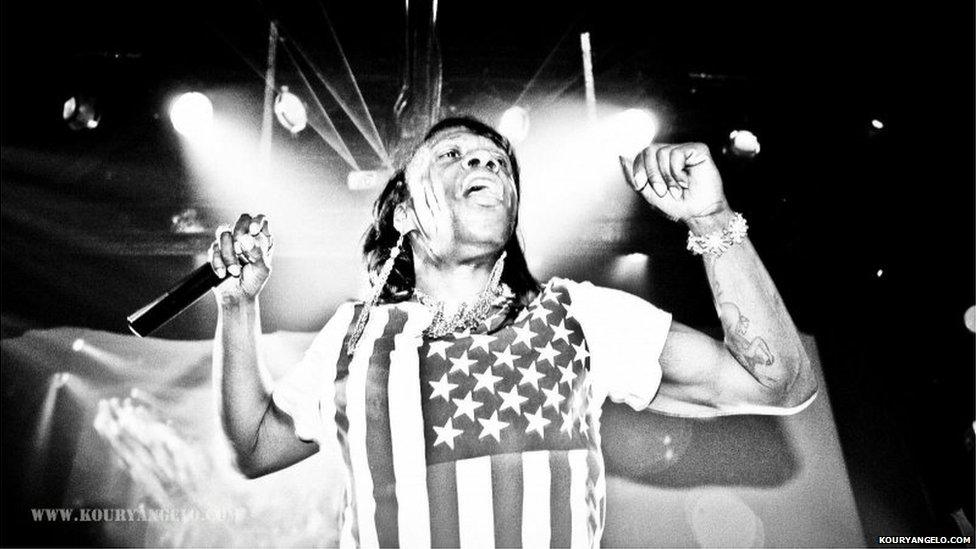
- Published28 August 2015
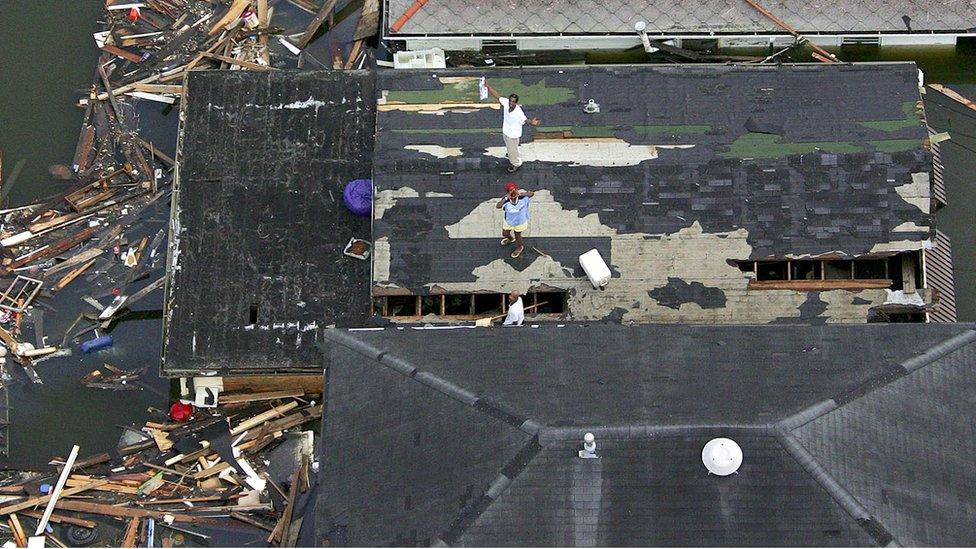
- Published20 August 2015
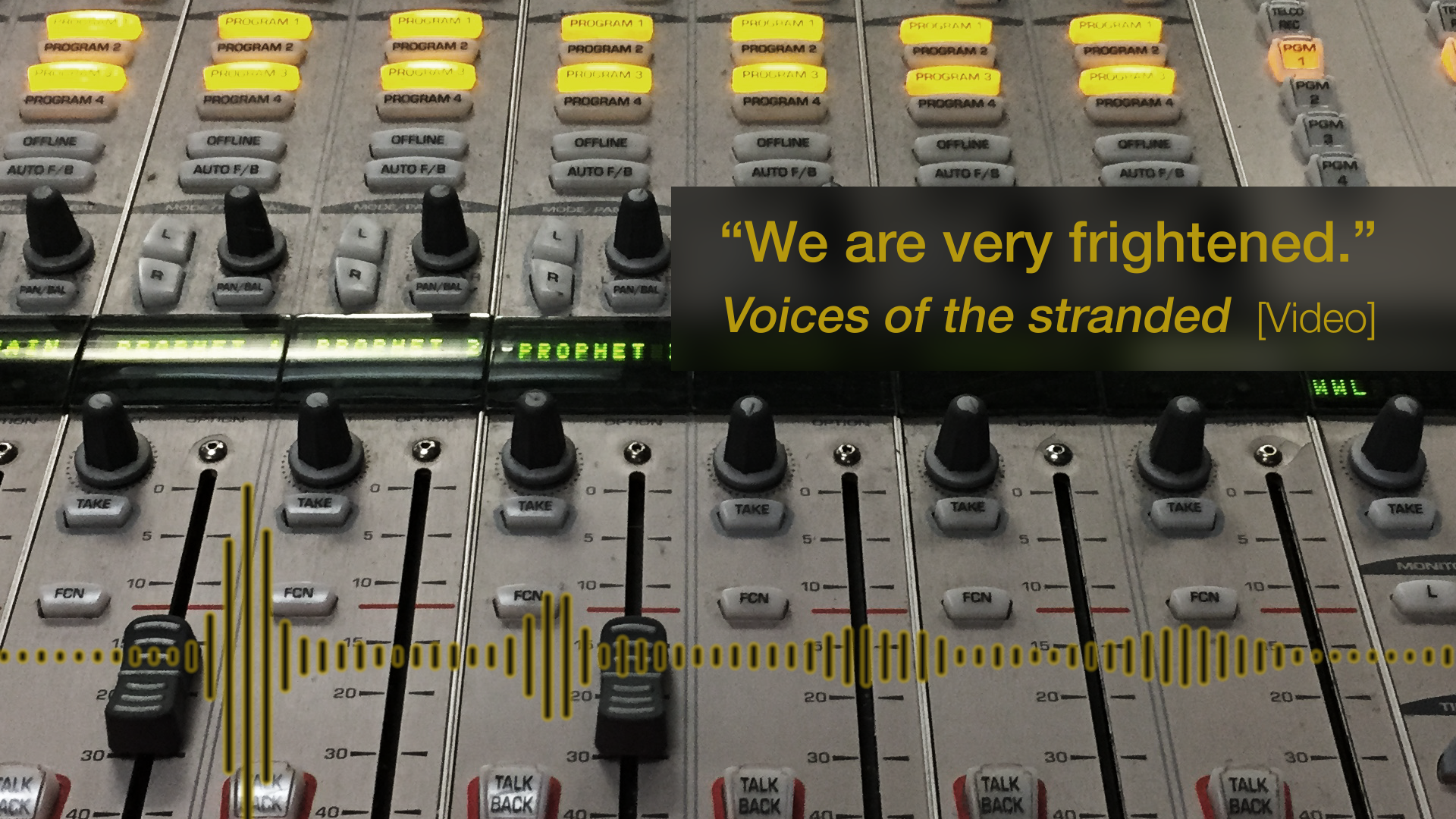
- Published20 August 2015
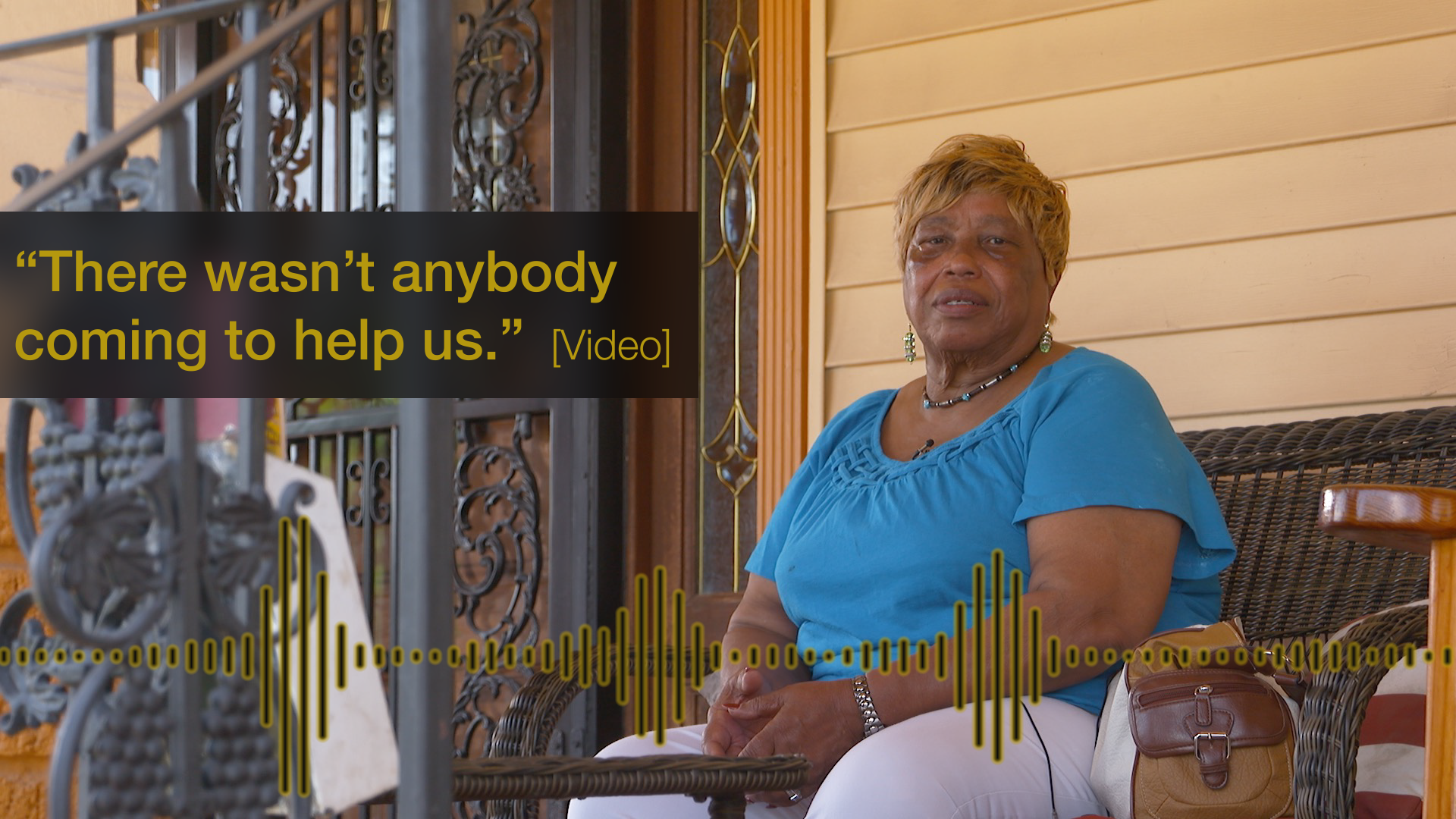
- Published20 August 2015
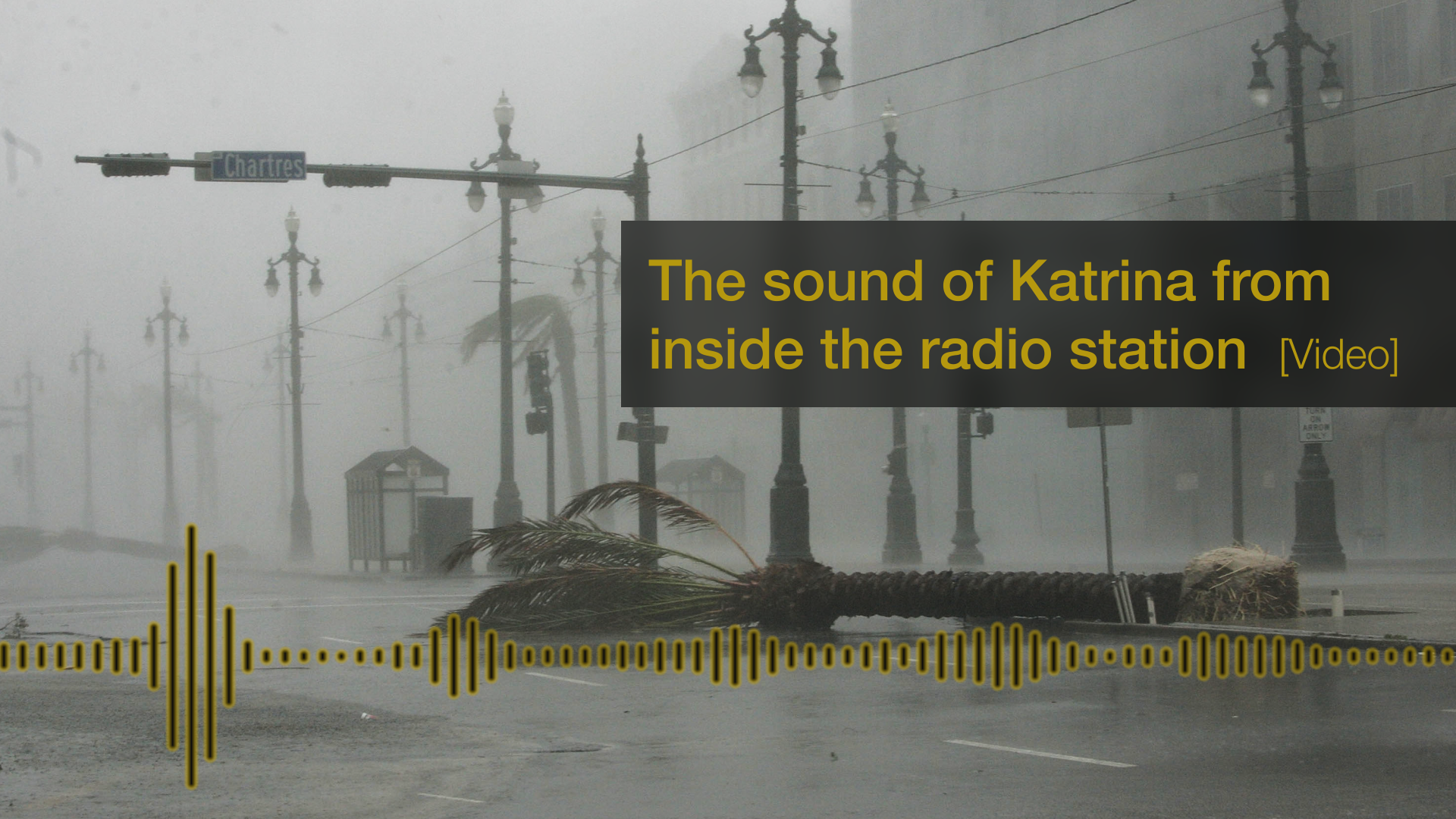
- Published27 August 2015
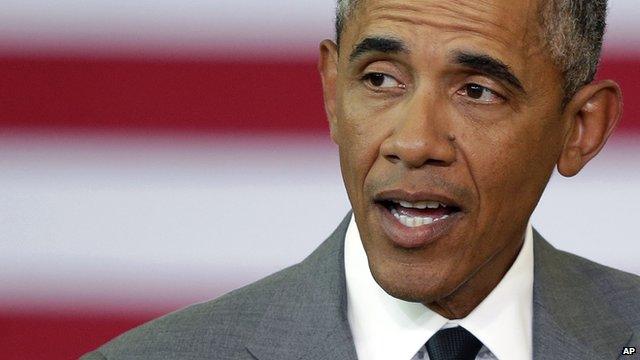
- Published25 August 2015

- Published20 August 2015
